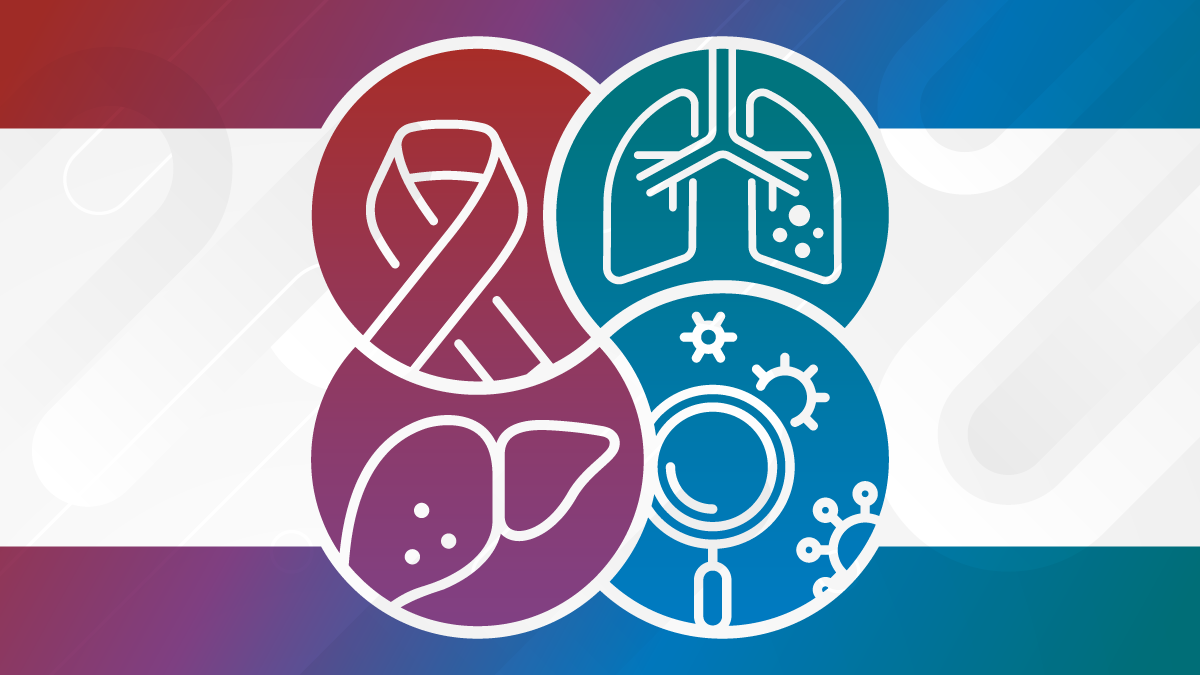At a glance
The National Center for HIV, Viral Hepatitis, STD, and Tuberculosis Prevention (NCHHSTP) is committed to a future free of HIV, viral hepatitis, sexually transmitted diseases, and tuberculosis. We work to reduce incidence of infection, morbidity and mortality, and health disparities in the U.S. and abroad.

What we do
NCHHSTP confronts the root causes of the nation's most prevalent infectious diseases by improving care and treatment access for the nation's most marginalized persons. NCHHSTP employees, public health interns, fellows, and researchers-in-training collaborate directly with the public and private sectors—engaging community, state, national, and global leaders to conduct public health activities that serve the public and groups at higher risk of negative outcomes.
NCHHSTP's Disease Prevention Areas:
NCHHSTP's Activities Include:
- Public health surveillance and disease prevention research.
- Funding grassroots disease prevention programs.
- Developing and promoting harm-reduction strategies.
- Developing data and educational materials to support clinicians.
- Developing communication materials to support disease prevention among highly affected groups.
The Center employs +1,700 full-time public health professionals working in various areas of public health, scientific research, public policy development, data collection, and health communication.
How we do it
NCHHSTP’s Office of the Director
The Office of the Director provides strategic planning and oversight for the Center’s public health goals. It works to foster a collaborative culture that supports innovation and informed decision-making. It is composed of seven offices that work to achieve the Center’s mission and support its four Divisions.
- Policy, Planning, and Partnerships - serves as the principal advisor for NCHHSTP on legislation, policy and planning guidance.
- Health Communication Science Office - manages a variety of internal and external communications, partnerships, health marketing, web development, social media, and media relations.
- Informatics Office - supports NCHHSTP projects and initiatives by managing public health data, software, and a number of information technology systems across a variety of platforms.
- Program and Performance Improvement Office - works across the Center to measure and improve the efficiency/impact of its programs, policies, and activities.
- Office of the Associate Director for Science - oversees scientific research, ethics guidance, and training, and supports the publication of staff-authored scientific papers.
- Laboratory Science - facilitates laboratory research within NCHHSTP and is the primary point of contact within the OD for laboratory science issues.
- Office of Health Equity - promotes public health equity and people-first approaches to infectious disease control through various programs, partnerships, and funding opportunities.
Resources
- NCHHSTP Careers - NCHHSTP offers a wide of careers, student learning opportunities, and graduate fellowships in public health, medical epidemiology, research, data science, infectious disease prevention, information technology, business and public policy, data management, and communications. Learn more.
- NCHHSTP on Social Media - Following NCHHSTP's social media handles is the best way to stay current on the latest news and information about HIV, viral hepatitis, STD, and tuberculosis and prevention efforts in the United States.
- National Prevention Information Network (NPIN) - NPIN is an information and resource platform connecting public health partners through collaborative communication and innovative technology solutions for HIV, viral hepatitis, STDs, and tuberculosis.
- NCHHSTP AtlasPlus - A tool to assist public health professionals, policymakers, community-based organizations, and researchers, track progress toward eliminating HIV, viral hepatitis, STDs, and tuberculosis.
